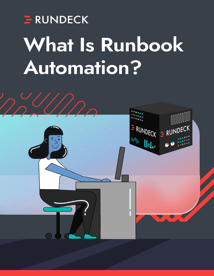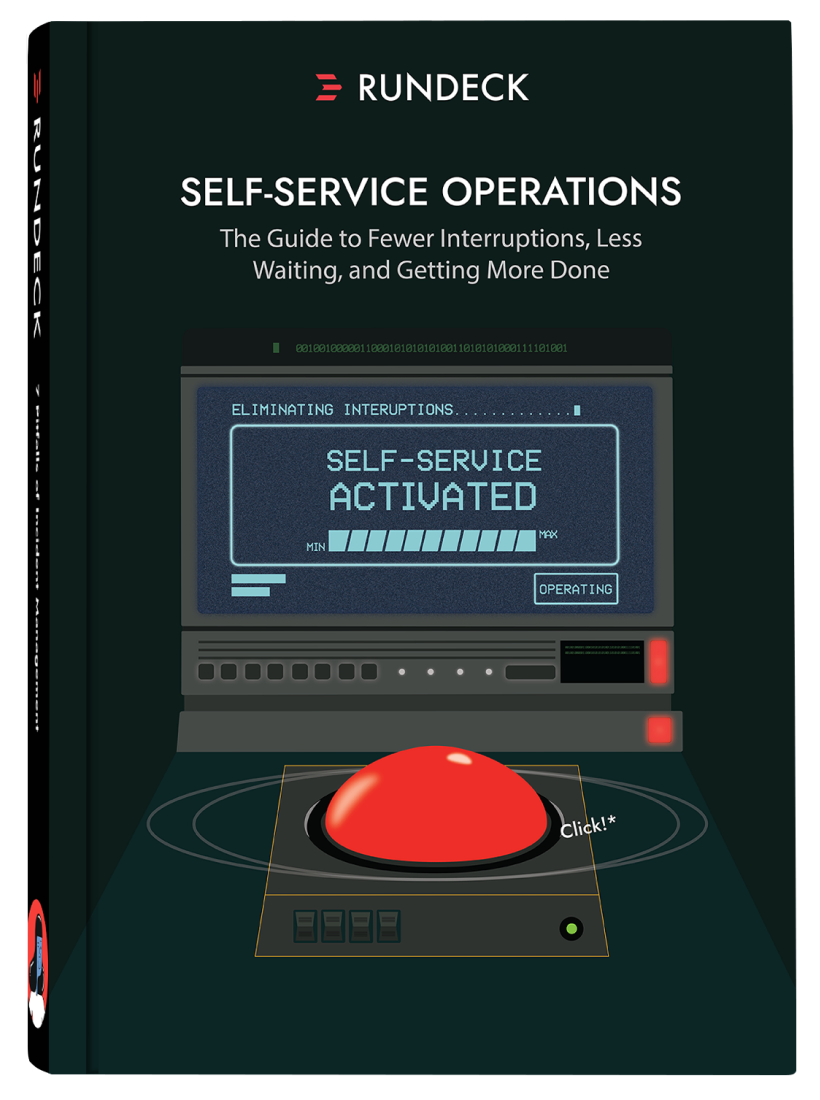RUNDECK SOLUTIONS
Reduce Toil and Operate Faster with Self-Service Automation
Automate and safely delegate, IT workflows used to resolve frequent tickets and requests
Request a Demo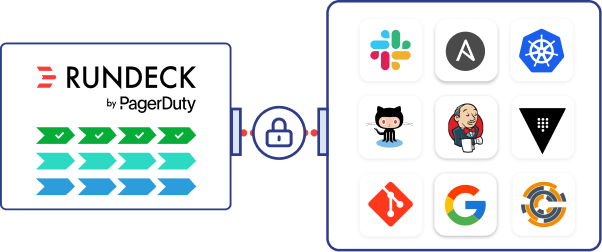
-DJ DeBrakeleer
Site Reliability Engineer, FreedomPay
-Sean Culligan,
Engineering, Broome-Tioga BOCES

-Phil Todd
Director, Software Development, CSG
Get Fewer Interruptions and Faster Turnaround Times by Automating Service Requests
Connect End Users to the Right Automation at the Right Time
Reduce Toil and Decrease Number of Tickets
Close tickets faster and prevent needless tickets by automating processes and making them available to requesters as self-service actions.
Boost Productivity of Operations Teams
Safely delegate operations to end users or staff to reduce escalations to subject matter experts.
Increase Innovation Capacity
Real-time operations allows ops teams to support faster rates of change such as continuous delivery of software and engineering high value solutions.
Put Real-Time Automation in The Hands of Users
Eliminate wait time for tickets since end users and responders can execute automation themselves. Lower priority requests are also filled in real-time as opposed to languishing in ticket queues.
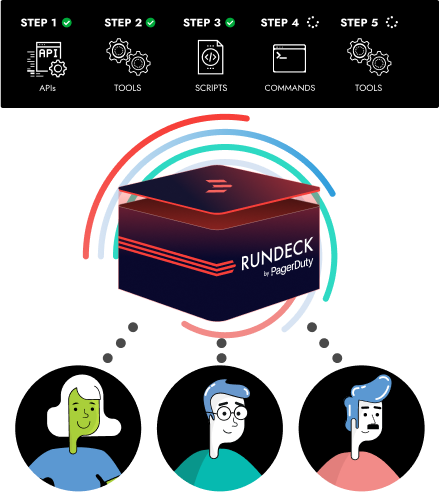
Improve Operational Quality
Make the best practices from your experts the common practice used by everyone. Define and standardize workflows that span different tools, scripts, APIs, and command line procedures and delegate self-service automation to the end users.
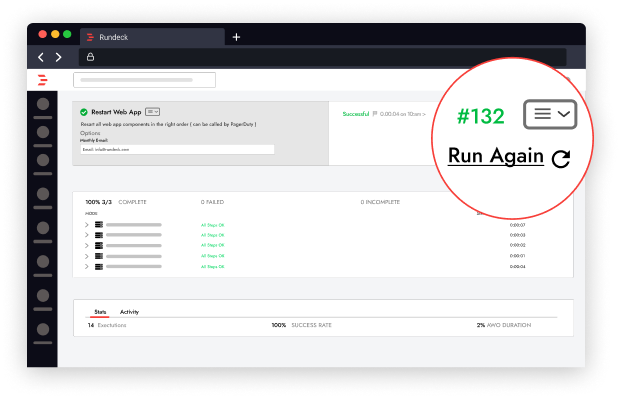
Increase Engineering Capacity
Reduction in manual, recurring tasks gives Ops teams more time to focus on engineering high value solutions, such as further automation of operations.

Delegate Operations to Where People Work
Invoke automation from the Rundeck UI or use plugin integrations to invoke automation directly from popular operations interfaces including ServiceNow, JIRA, Slack, PagerDuty and more.
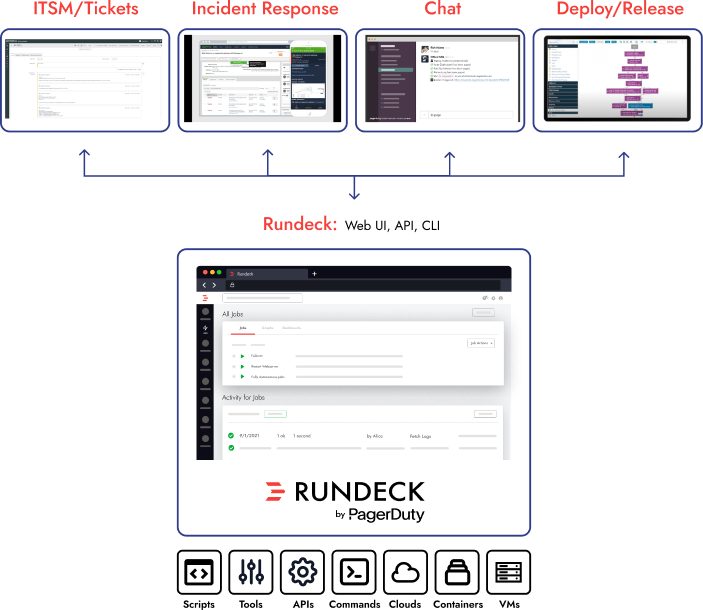
Ensures Safety and Compliance
Subject matter experts define access rules for actions through a publishing workflow. Granular role-based access controls ensure self-service users only see actions they’re authorized to invoke.
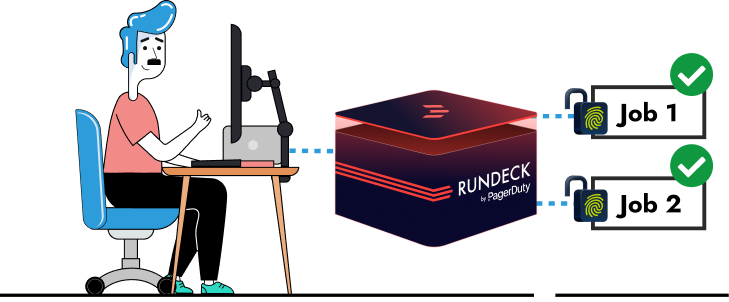
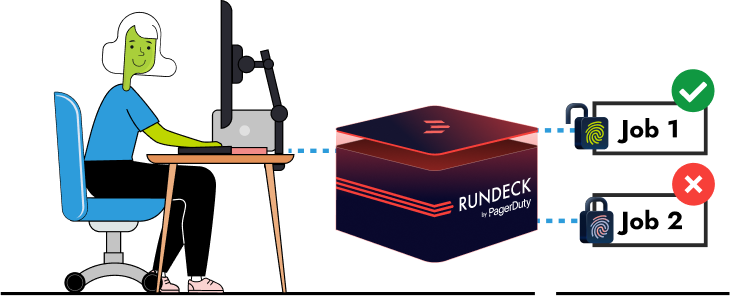
ROI

What is Runbook Automation
Learn how to identify the full cost of service requests and the ROI of leveraging Runbook Automation to enable self-service
Self-Service Operations Guide
Self-Service operations allows organizations to move faster, be more flexible, and lock things down. Read this ebook to learn more.
Intro to Rundeck Webinar
Join us to learn how Rundeck can help define automated workflows across tools, scripts, APIs and manual commands for secure self-service operations.
San Francisco, CA 94103
© 2025 PagerDuty, Inc. All rights reserved.
